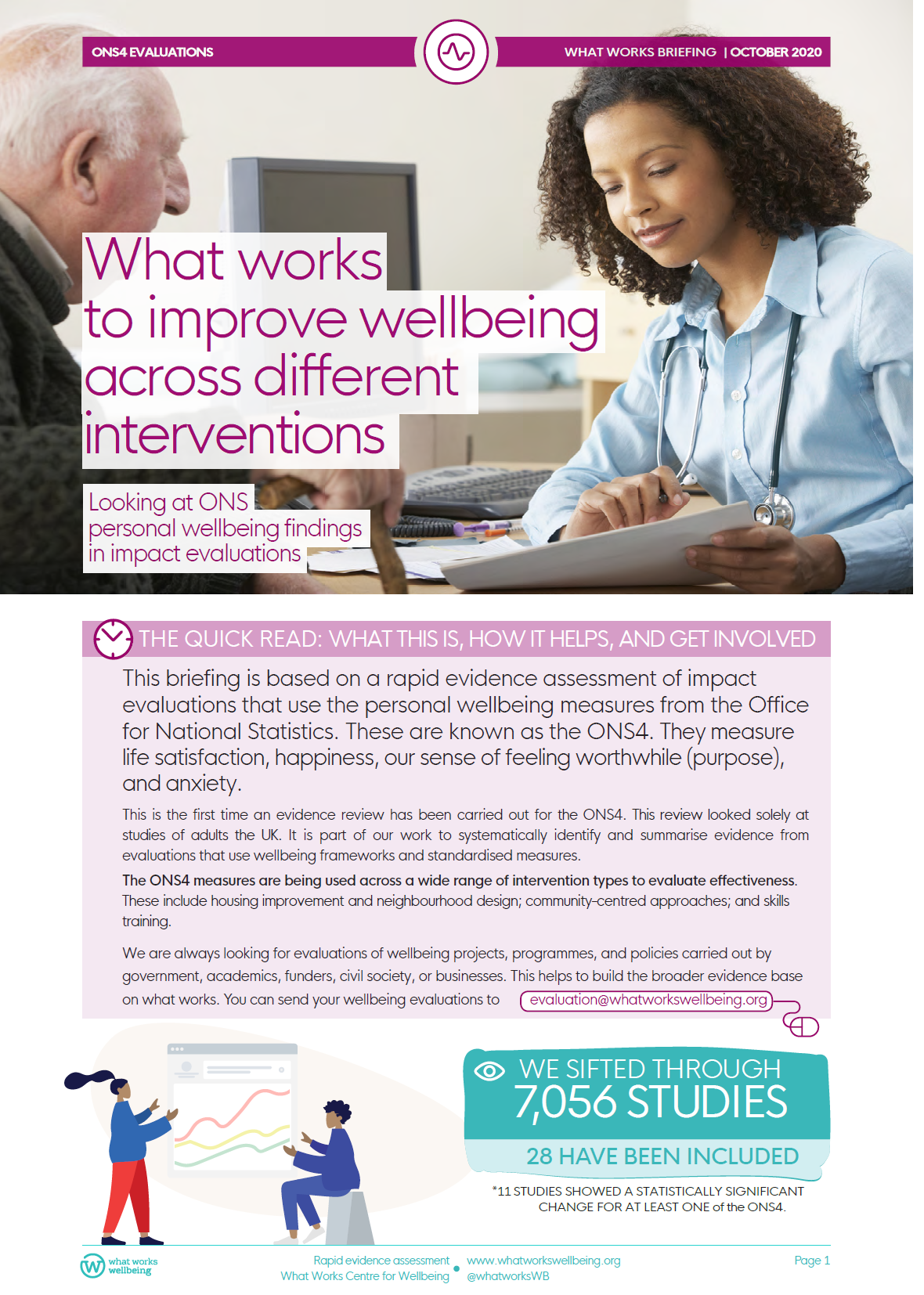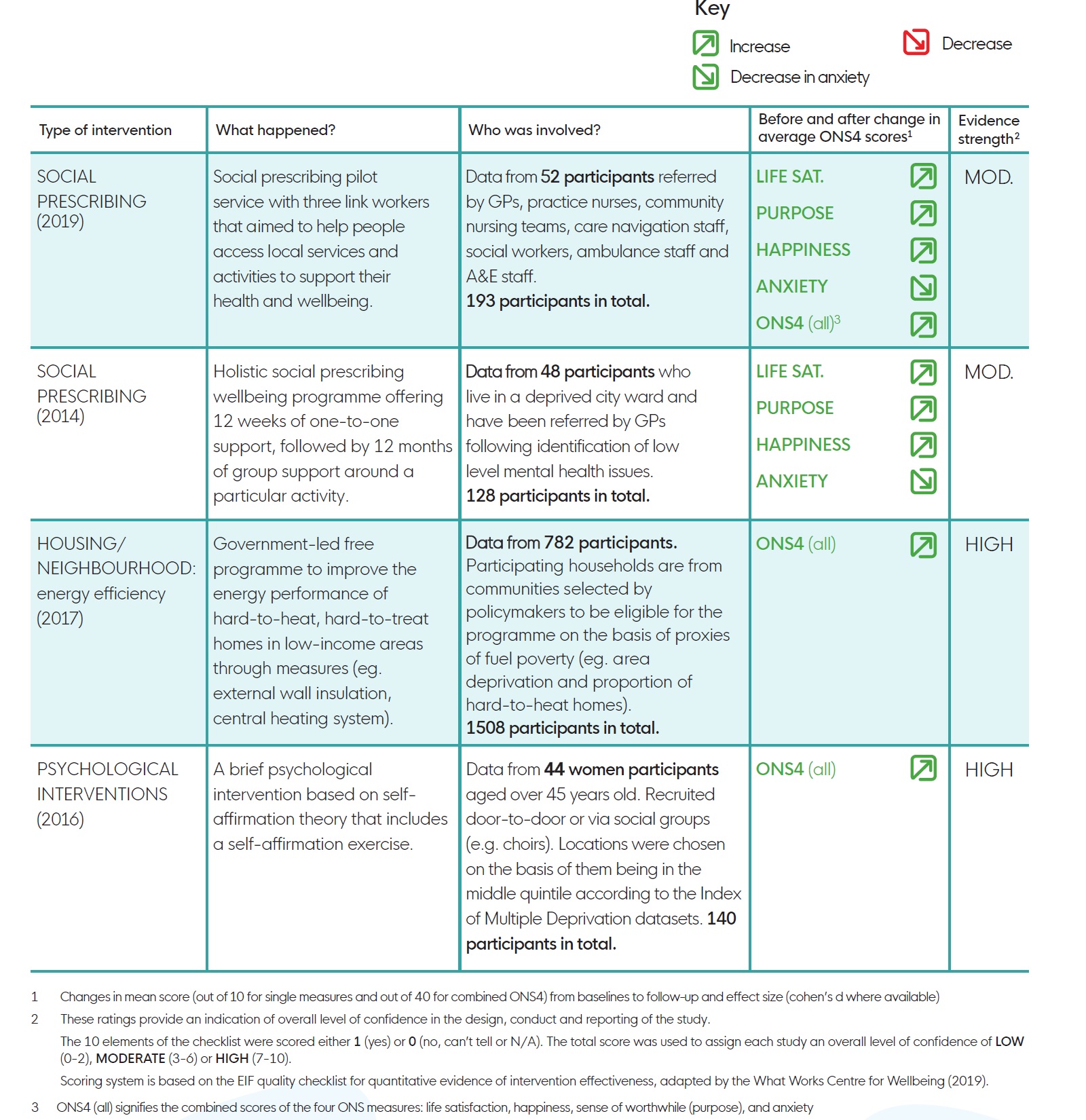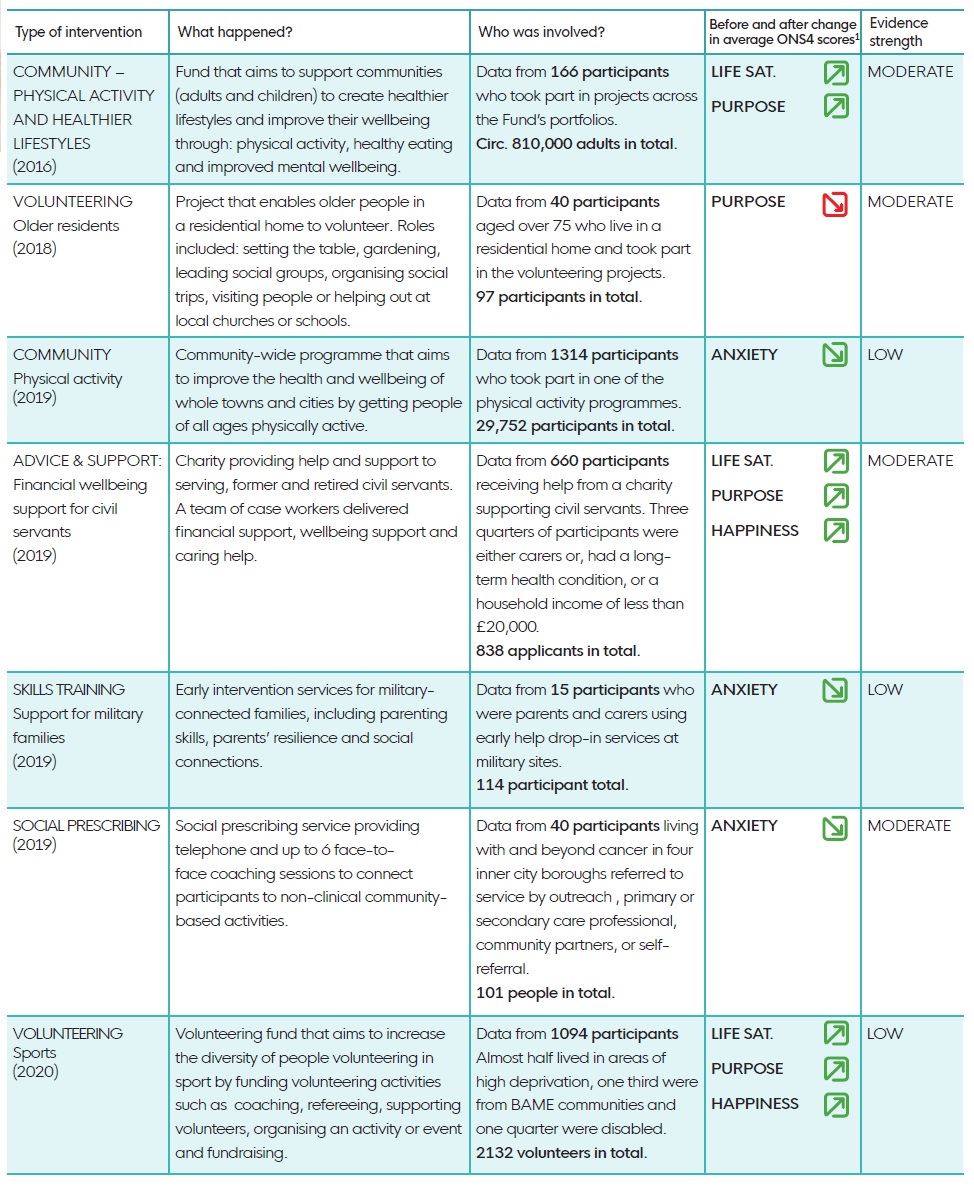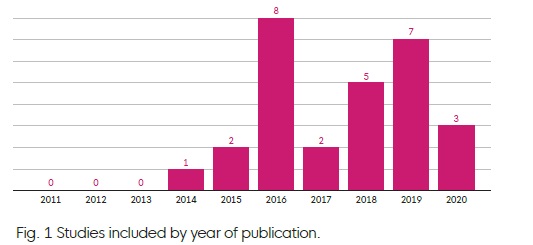What works to improve wellbeing across different interventions
Downloads

Introduction
This briefing is based on a rapid evidence assessment of impact evaluations that use the personal wellbeing measures from the Office for National Statistics. These are known as the ONS4. They measure life satisfaction, happiness, our sense of feeling worthwhile (purpose),
and anxiety.
The ONS4 measures are being used across a wide range of intervention types to evaluate effectiveness. These include housing improvement and neighbourhood design; community-centred approaches; and skills training.
We are always looking for evaluations of wellbeing projects, programmes, and policies carried out by government, academics, funders, civil society, or businesses. This helps to build the broader evidence base on what works. You can send your wellbeing evaluations to evaluation@whatworkswellbeing.org
-
7056
Studies
-
28
have been included
-
11
studies showed a statistically significant change in at least one ONS4.
ONS4 evaluations: what works?


Can you be confident in this evidence?
Our REA summary report presents findings on the characteristics, results and quality of 28 included studies and we’ve built an accompanying study database with in-depth information on the evaluation design, sample, findings and quality score of each impact evaluation. REAs use the same rigour as systematic reviews to identify and select studies, albeit with narrower research questions and less extensive review methods.
Who is using the ONS4 measures in impact evaluations, and why?
The ONS4 measures are increasingly used across government departments, as well as the private sector and third sector organisations. Yet, until this review, relatively little was known about how they feature and perform in wellbeing impact evaluations in the UK. We can now highlight some relevant findings:
- Organisations are now using the ONS4 measures to evaluate the effectiveness of a wide range of intervention types. These include: community-centred approaches, volunteering, physical activity, social prescribing, psychological interventions, social care support, skills training, advice and support, arts and culture, and housing improvement and neighbourhood design.
- Many of the interventions are aimed at one or more specific demographic groups, and are delivered across UK regions. Populations included: older people (11 studies), working age adults (4 studies), women (1 study), Black, Asian and minority ethnic groups (2 studies), people living in deprived areas (6 studies) and people with underlying health conditions (6 studies). Interventions spanned 8 official UK regions, excluding Northern Ireland and the East Midlands.
- More organisations are using the ONS4 to evaluate wellbeing interventions. The first eligible study found was published in 2014 and more than half the studies identified were published between 2018 and 2020.

The measures feature in evaluations produced by a range of universities and consultancies, and they are used in a variety of research designs. The most commonly mentioned funder of evaluations was the Big Lottery and the large majority of studies are classed as grey literature (22 studies).
- The most commonly used ONS4 questions were LIFE SATISFACTION and HAPPINESS and almost half the studies used additional non-ONS4 wellbeing measures.
Of the 16 studies that used all four ONS questions to assess effectiveness, only two calculated or provided combined scores for the ONS4. The most common additional wellbeing measures were:- Warwick-Edinburgh Mental Well-being scale (WEMWBS) (8 studies)
- Loneliness (9 studies)
- Quality of Life scales (4)
- ONS Social capital measures (4).
- The majority of studies (19) collected qualitative data on wellbeing through interviews or focus groups with participants.
While use of the ONS4 seems more common in uncontrolled studies with moderate to low quality scores, there is promising evidence for some intervention types, in particular social prescribing, which may warrant its own, more targeted review.
![]()
[gravityform id=1 title=true description=true ajax=true tabindex=49]


